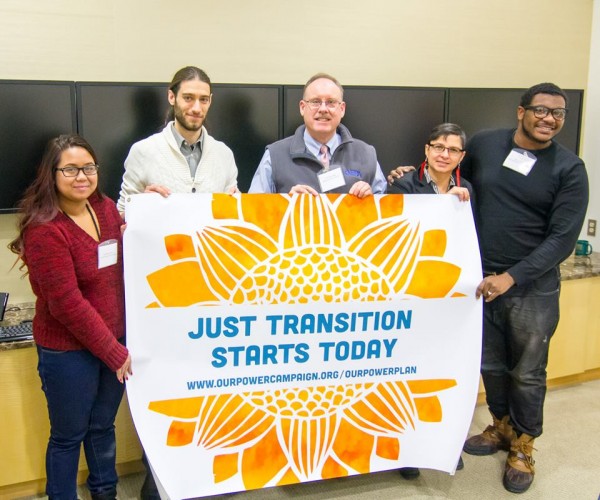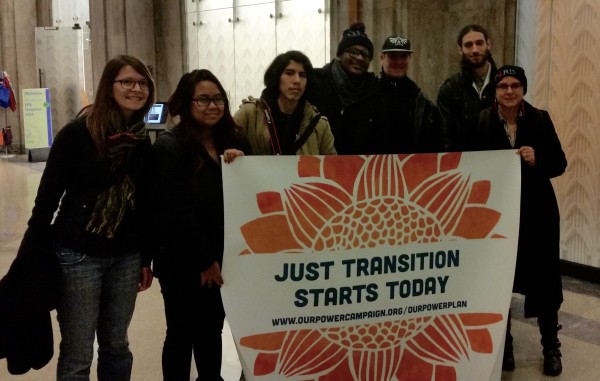
On January 22, 1973, the Supreme Court’s landmark decision in Roe v Wade ensured that women have the right to reproductive freedom. This opinion was reaffirmed in 1992 when the Court ruled that “throughout this century, this Court also has held that the fundamental right of privacy protects citizens against governmental intrusion in such intimate family matters as procreation, childrearing, marriage, and contraceptive choice…and this Court correctly applied these principles to a woman’s right to choose abortion.”
Our views of women’s equality, participation in the labor force, and control over one’s own body have shifted dramatically in the past five decades. In 1965, only married women had contraceptive rights guaranteed by Griswold v. Connecticut. It took until 1972, a year before Roe, for the Supreme Court to rule that unmarried women had the right to birth control pills.
Prior to Roe, thousands of women died in the United States because they were forced to seek abortion in unsafe conditions. Women of color and those of limited economic means were particularly at risk of losing their life from an illegal abortion. Affluent women, however, were able to travel overseas or to states where abortions were legal.
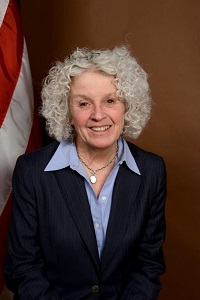
Unfortunately, the gains made to protect women’s reproductive care – from access to abortion to affordable, accessible birth control – continue to be threatened by those who aim to take away a woman’s right to determine what is best for her own health and her own life.
In state legislatures across the country, opponents of reproductive freedom continue to gain ground. In the past five years, state legislatures have passed over 280 laws restricting a woman’s right to safe, legal abortion. Many of these laws intervene in the physician-patient relationship, requiring a woman’s doctor to provide her with inaccurate medical information. Other laws add unnecessary red tape to physicians’ practices and create hurdles to providing women with health care. The effect has been to increase costs and close clinics. In parts of the United States, women are once again traveling hours to access health care.
Some of the most egregious laws have been enacted in Texas. The U.S. Supreme Court is set to hear arguments in early March and this case is likely to be the most important decision about abortion rights since Roe itself. Attorneys General from twelve states, including our neighbors in Connecticut and Massachusetts, filed an amicus brief asking the Court to invalidate the Texas laws.
While we have not seen similar roll backs enacted in Rhode Island, women’s autonomy is still at risk. In 2013, the Rhode Island General Assembly attempted to create Choose Life license plates that would support “pregnancy crisis centers” and religious institutions that lobby against reproductive rights. The bill was vetoed by Governor Chafee. Just last week, a “fetal heartbeat” bill was introduced into the Rhode Island House that, if passed, could potentially criminalize abortion.
Even without new laws, however, the ones we currently have significantly curtail a woman’s right to make her own health care decisions. Women under 18 must receive parental consent to have an abortion. Though it’s been found to be unconstitutional, Rhode Island law still says a woman must tell her husband of plans for an abortion, even if doing so would put her life at risk. Thousands of Rhode Islanders do not have health insurance that covers abortion because state law prohibits health insurance plans available to state and municipal employees from covering it. Our state also prohibits Medicaid from covering abortions in most circumstances.
Rhode Island’s constitution provides equal protection under the laws, stating that “no otherwise qualified person shall, solely by reason of race, gender or handicap be subject to discrimination by the state, its agents or any person or entity doing business with the state.” There’s just one caveat: such protections do not apply to a woman’s access to abortion. In New England, Rhode Island sticks out like a sore thumb: our state receives a grade of D+ from NARAL Pro-Choice America, because our laws do not adequately protect reproductive freedom. By contrast, even conservative states like Alaska and West Virginia get Bs, because their constitutions provide stronger protections.
Just as they did 50 years ago, these current and proposed restrictions on reproductive rights disproportionately affect middle and low income Rhode Islanders. While some women can travel to neighboring states and privately pay for health care, many cannot. As we look back and see how far we’ve come on our march for reproductive freedom, let’s not forget that we still have far to go.

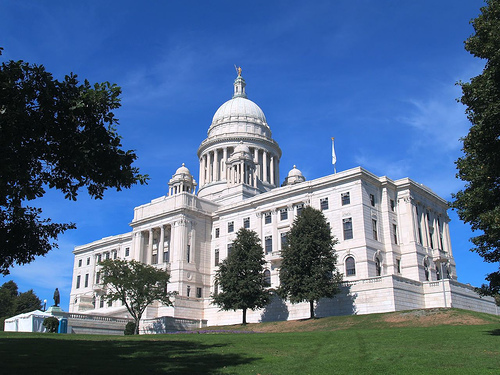

 Those interested in helping to get Bernie Sanders on the presidential ballot here in Rhode Island should consider heading out to
Those interested in helping to get Bernie Sanders on the presidential ballot here in Rhode Island should consider heading out to 


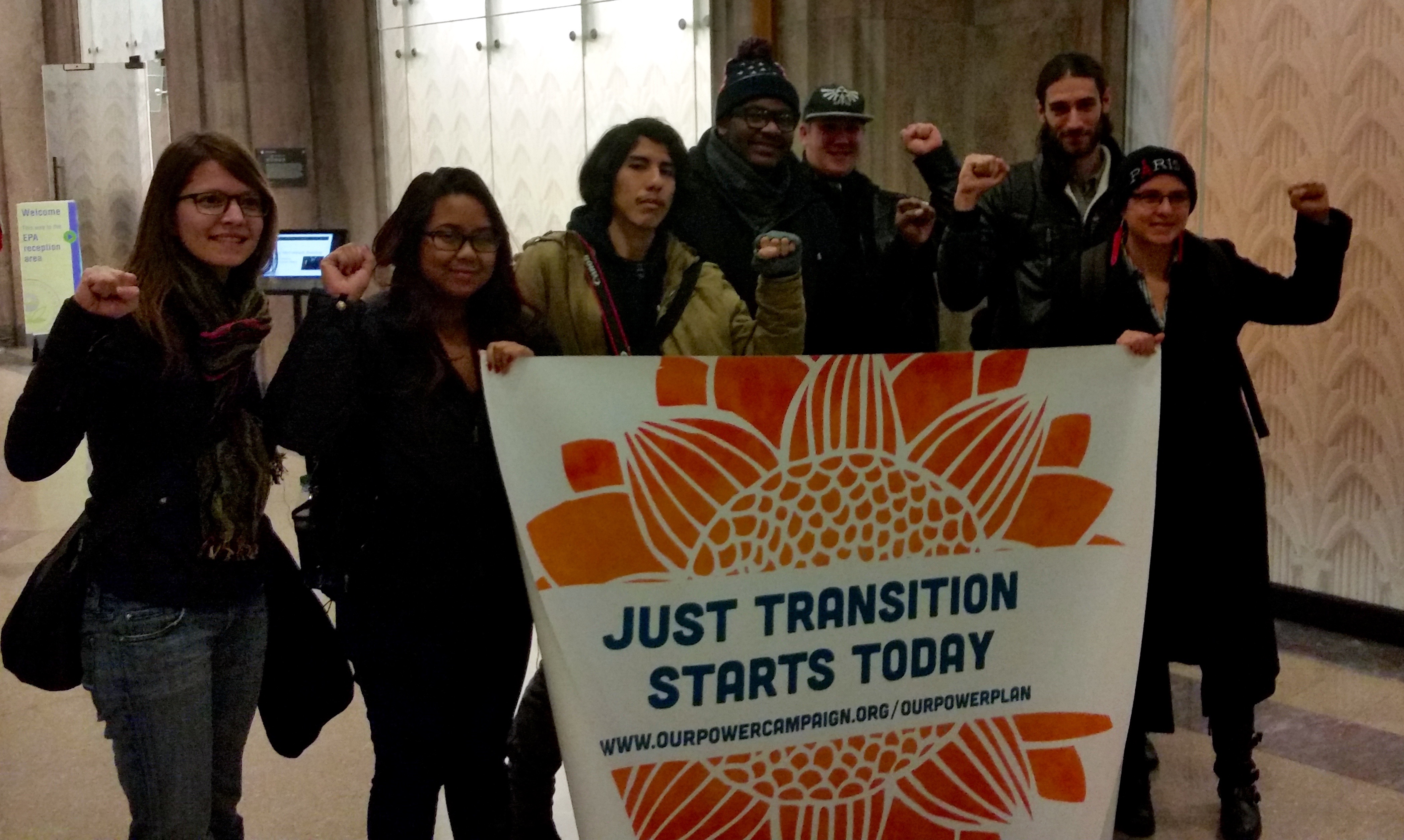
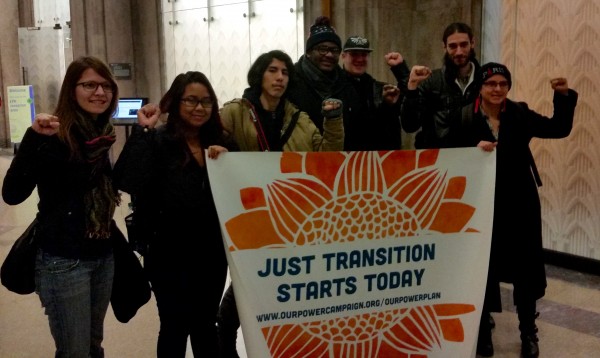 Environmental justice leaders from frontline communities hardest-hit by climate change and pollution converged on all 10 Environmental Protection Agency (EPA) regional office headquarters yesterday, to mark the end of the final public comment period for the Obama Administration’s federal Clean Power Plan (CPP) to reduce power plant carbon emissions 32% by 2030.
Environmental justice leaders from frontline communities hardest-hit by climate change and pollution converged on all 10 Environmental Protection Agency (EPA) regional office headquarters yesterday, to mark the end of the final public comment period for the Obama Administration’s federal Clean Power Plan (CPP) to reduce power plant carbon emissions 32% by 2030.